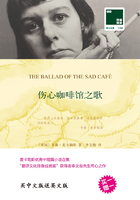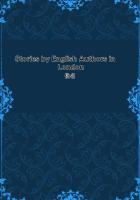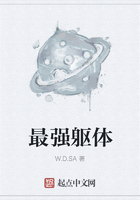English Tort Law
English tort law concerns civil wrongs, as distinguished from criminal wrongs, in the law of England and Wales. Some wrongs are the concern of the state, and so the police can enforce the law on the wrongdoers in court—in a criminal case. A tort is not enforced by the police, and it is a civil action taken by one citizen against another, and tried in a court in front of a judge ( only rarely, in certain cases of defamation, with a jury) . Tort derives from Middle English for“injury”, from Anglo-French, from Medieval Latin tortum, from Latin, neuter of tortus“twisted”, from past participle of torquēre.
Following Roman law, the English system has long been based on a closed system of nominate torts, such as trespass, battery and conversion. This is in contrast to the Continental legal systems, which have since adopted more open systems of tortious liability. There are various categories of tort, which lead back to the system of separate causes of action. The tort of negligence is however increasing in importance over other types of tort, providing a wide scope of protection, especially since Donoghue vs. Stevenson. For liability under negligence a duty of care must be established owed to a group of persons of which the victim is one, a nebulous concept into which many other categories are being pulled towards. But as Lord MacMillan said in the case,“the categories of negligence are never closed”.
Negligence
Negligence is a tort which targets a breach of duty by one person to another. The famous landmark case of Donoghue vs. Stevenson, in which Mrs. Donoghue, the claimant, consumed part of a drink containing a decomposed snail while in a public house in Paisley, Scotland. The snail was not visible, as the bottle of ginger beer in which it was contained was opaque. Neither her friend, who bought it for her, nor the shopkeeper who sold it was aware of its presence. Donoghue sued the manufacturer, Mr. Stevenson for her consequent illness, using negligence as, not having purchased the drink herself,the little consumer protection legislation available in 1932 was inapplicable. The members of the House of Lords agreed that Mrs. Donoghue had a valid claim, but disagreed as to why such a claim should exist. Lord MacMillan, as above, thought this should be treated as a new product liability case. Lord Atkin argued that the law should recognize a unifying principle that we owe a duty of reasonable care to our neighbour. He quoted the Bible in support of his argument, specifically the general, biblical principle that“love thy neighbour”.
“The liability for negligence . . . is no doubt based upon a general public sentiment of moral wrongdoing for which the offender must pay . . . The rule that you are to love your neighbour becomes in law, you must not injure your neighbour; and the lawyer s question‘who is my neighbour?’receives a restricted reply. You must take reasonable care to avoid acts or omissions which you can reasonably foresee would be likely to injure your neighbour.”
Thus, in the world of law, he created the doctrine that we should not harm our neighbours. The elements of negligence are:
( 1) A duty of care;
( 2) Breach of that duty;
( 3) Breach causing harm in fact;
( 4) The harm must be not too remote a consequence of the breach.
Duty of care
The establishment of a duty of care is, like negligence itself, broken up into further elements, a three-step test ( or in some cases more) Donoghue vs. Stevenson laid the groundwork for subsequent developments, and from the words of Lord Atkin s speech, he can be seen to refer to firstly, the concept of reasonable foreseeability of harm; secondly, the claimant and the defendant being in a relationship of proximity; and thirdly, and more loosely, it being fair, just and reasonable to impose liability on the defendant for his careless actions. This three step scheme however, did not crystallise until the case of Caparo Industries Plc vs. Dickman. In this somewhat complicated case, a company called Caparo took over another company, by buying up a majority of its shares. It did this because it sneakily obtained word from a company audit thatthe target was financially sound. The audit was prepared by a group of accountants ( Dickman) and was intended for shareholders, not outsiders. Once Caparo owned the company it found that the finances were in fact pretty shoddy, and so it sued the accountants for being negligent in its audit preparation. The House of Lords found against Caparo, and established the current three-fold test. Although it was“reasonably foreseeable”that outsiders might learn of the carelessly prepared information, it was not the case that Caparo and Dickman were in a relationship of“proximity”. This the court used as a term of art ( note, this is different from the American use of the word) , to say that it should not be the case that absolutely anyone hearing something said that was stupid and acted on it can sue. The court was reacting to its concern that to allow a claim here might open the floodgates of litigation. The third element, whether liability would be“fair, just and reasonable”was an extra hurdle added, as a catch all discretionary measure for the judiciary to block further claims.
General standard of care
In order not to breach a duty of care, a defendant must generally meet the standard of a“reasonable man”.
A reasonable person can be defined as“the man on the Clapham omnibus”as Greer L J explains in Hall vs. Brooklands Auto-Racing Club. Lord Steyn describes the term as“commuters on the London Underground”.
This is an objective standard, based on an average person. It does not require perfection, but takes into account that an average person does not foresee every risk. The average person is not assumed to be flawless, but ordinarily careful and prudent.















